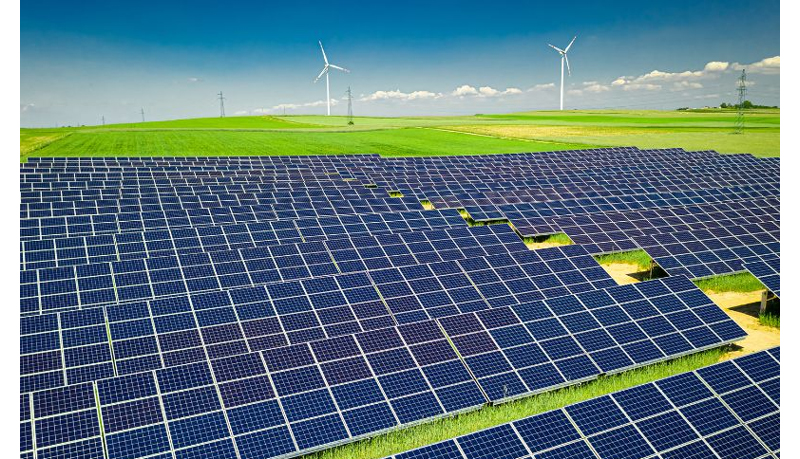*It is essential for UT to realize its full capabilities to secure a sustainable energy future.
Govind Sharma
JAMMU, Dec 4: Over the last five years, hydropower has significantly dominated renewable energy (RE) generation in Jammu and Kashmir, whilst solar energy’s contribution has been minimal. Meanwhile, other sources such as wind, biomass, and bagasse have yet to make an appearance.
This was highlighted today when the Minister of New and Renewable Energy (MNRE), Shripad Yesso Naik, published data regarding RE generation in India following an inquiry from MP Rajesh Ranjan in Lok Sabha.
The report indicated that during the 2019-20 fiscal year, J&K produced a total of 18,537.25 Million Units (MU) of renewable energy, comprised of 443.13 MU from small hydro projects and 18,094.12 MU from large hydro projects. Notably, there was no recorded output from solar, wind, biomass, or bagasse. In the subsequent year, the renewable energy generation experienced a slight reduction to 17,441.97 MU, with 429.88 MU from small hydro and a substantial 17,002.68 MU from large hydro, while solar contributed only 9.42 MU.
This trend continued into 2021-22, with total renewable energy generation reaching 17,489.83 MU, including 414.10 MU from small hydro and 17,074.02 MU from large hydro, while solar contributed a mere 1.71 MU. By 2022-23, the total generation dropped to 17,170.62 MU, with 393.20 MU from small hydro and 16,777.42 MU from large hydro, and solar and other sources ranking as insignificant.
The most recent data for 2023-24 shows a further decline in total renewable energy generation to 16,282.93 MU, with 408.69 MU from small hydro and 15,874.24 MU from large hydro, while solar, wind, and other sources did not contribute.
These statistics reaffirm that hydropower is the dominant source of renewable energy in the region, with large hydro projects reliably generating over 15,000 MU annually, while small hydro contributions remain comparatively lower. Solar energy demonstrated some activity in 2020-21 and 2021-22 but overall remains largely negligible. Furthermore, wind, biomass, and bagasse energy generation have yet to surface in the region.
On a national scale, renewable energy comprised 20.69% of total energy production in 2023-24, a slight decline from the previous year’s 22.51%. The Government is dedicated to expanding renewable energy projects throughout the country, particularly focusing on solar and wind technologies, to complement hydropower’s significant role in regions like J&K. The report highlights the necessity for J&K to diversify its renewable energy portfolio to unlock its full potential and secure a more balanced and sustainable energy future.


Leave a Reply